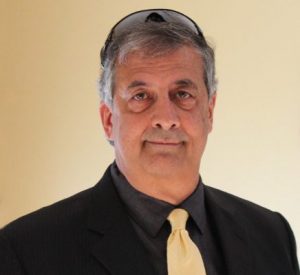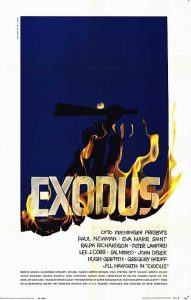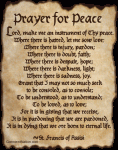Palestinians failing in telling their story
Where is the Palestinian “Exodus”? Palestinians have failed to tell their story to counter the lies propagated by lies spread by Israel. The Israelis have built up myths catered to appeal Audiences in America, where the power rests to determine who will dominate the Middle East. Arabs have underestimated the influence of the population in the United States, a major error that has cost them a nation. Sadly, most Palestinians don’t even recognize their failure and instead focus on emotion and that hate it creates
Published in the Arab News Newspaper June 15, 2017
By Ray Hanania

Palestinian activists, Arab and Muslim organizations in America issued passioned, well-meaning statements denouncing Israel and urging people not to forget.
In the Arab and Muslim World, it passed with barely a rumble.
The people and the leadership in the Arab community have changed. What’s not changed is how we tell our story. We’re basically doing the same things today that we did in 1948 and in 1967, with less physical resistance and less violence, of course.
But we don’t really need violence. What we need is to do a better job of telling our story.

Palestinians continue to protest and organize and hold conferences where the speak to the “choir.” Sometimes, the activism is effective, such as with the BDS movement. BDS (Boycott, Divest, Sanction) has made gains, but it’s still not enough to bring about real change.
It hasn’t brought about substantive change. Israel continues to expand slowly and steadily erasing the Palestinian identity.
What we should be doing is what Israel began doing since 1948. Israel knows how to tell its story to mass audiences, effectively and in a compelling narrative. The story Israel tells is not accurate, of course. It is built on lies, exaggerations and the demonization of Palestinians and anyone who criticizes them.
We need to do a better job of telling our story.
I was in a major Chicago library the other day in the Middle East section where I found dozens of books by Israelis and Jews who shared their experiences in “building” a state in the shadow of the Holocaust in a compelling writing style.
The two sides were together, but the literature of the two sides is vastly different, not just in the facts that each tell but in the style in which they tell it. The Israeli story wasn’t weighed down with footnotes or even facts. They were not written the way most Arabs books are written, as factual but boring academic dissertations.
Yes, sadly, the truth can be boring and “boring” is not read.
The pro-Israel books offered compelling stories of what it is like to be them. They neutralize the Palestinian narrative. The Israelis succeed in “connecting” with their audiences, in this case American readers, far better than the Palestinians and Arabs have been able to do.
Only a very few Palestinian and Arab writers have told their stories in a personal way that might connect with American readers.
It isn’t just the print industry that is the problem. It’s everywhere. The gap between how Israelis present their story and how Palestinians and Arabs present their story is immense. It exists in the movies, the theater and on television not just in the popular TV sitcoms but also in the fundamental “brain” shows like those on the History Channel.
The truth is that after 70 years the real story of Palestine has not been told in a powerful, compelling or effective way for audiences to embrace. Yet the Palestinian story is very powerful, the kind that makes for great books and great movies.
I’ve written about the power of the fictional story Leon Uris wrote about the birth of Israel, called “Exodus.” Uris was commissioned by Israel to create a compelling narrative, a myth that was both believable and that would bring American audiences to the edge of tears and compassion.
Yet, where is the Palestinian “Exodus?”
Is it because we don’t have the money? We have the stories. The nightmare in Gaza alone could tug at the heartstrings of Americans, yet it doesn’t because it hasn’t been produced.
The difference in the effectiveness of the Israeli narrative and the Palestinian narrative is not a gap based on substance or facts. It is a gap based on “delivery.” And by delivery I mean the manner in which a story is told.
The Palestinian and Arab narrative is handicapped by ineffective communications that lack some fundamental basics when speaking to Western audiences, especially Americans. What are those fundamental basics?
• It’s not what you say, but how you say it.
• You don’t win the debate by winning the argument. You win the debate by winning the audience.
• The more you look, act, dress and sound like the audience you are addressing, the more the audience will embrace your narrative. It is a fact of human nature.
• Most importantly, don’t stand in the way of your own story. Let the story tell itself. Your anger, your emotion and even your passion can be a roadblock for audiences not an asset. Put your passion into crafting the story, not in telling the story.
Compelling narrative comes from the delivery of the story, not from the narrative itself. What I mean by “delivery” is not how you hand it to someone, but the substance of what you are saying. You have to tell the story in a way that your audience wants to hear it, not in the way you want to tell it.
Don’t talk to yourself.
If the audience is not “listening” or is not receptive to your story, then it won’t be heard.
Is there not someone out there who knows how to tell the Palestinian story the way the audience needs to hear it?
Nearly 70 years since the Nakba and 50 years since the 1967 Arab-Israeli war shame, I am still wondering.
(Ray Hanania is an award winning Palestinian American columnist and author. Email him at rghanania@gmail.com.)


- Israelisnipers shooting and killing hospital workers in Gaza - December 11, 2023
- CAIR Condemns Israeli Executions of Wounded, Unarmed Palestinian in West Bank - December 11, 2023
- Arab and Muslim American voters face a “simple choice” between Biden’s inhumanity and Trump’s edgy politics - December 9, 2023
























Whose fault do you think that is? How many Palestinians write about their stories in an effective way .. YOU write better than most Palestinians I know and YOU tell their story better, but that doesn’t mean the story is being told … it has to be done in a specific way that most of our community just doesn’t understand and doesn’t want to understand … they’d rather cling to egos, reject self-criticism and analysis (evaluation) and instead of seeing their faults, they pretend they don’t exist
This American writer responds to Ray Hanania: https://uploads.disquscdn.com/images/fc670a685095714e373f826010c519237e71892d49d60dabc87d3030312b41dd.jpg
https://thearabdailynews.com/2017/06/23/entertaining-american-audiences-palestinian-exodus-side-story/
No the problem is we haven’t told out stories … Just a couple of efforts in a divided community that loves suffering more than hope
If you read “KEEP HOPE ALIVE” you may just change your mind because Dr Diab exemplified HOPE beyond the suffering that ALL refugees forced from their home under threat of death know. Dr Diab did NOT wallow in his pain he was pro-active!
Dr Diab was a secular Muslim and one of THE BEST at following what Jesus taught- in fact I use to tell him he was a better Christian than any self-professing Christian I have known because he DID what Jesus commanded: Forgive and LOVE ones enemies.
Hey Ray the Palestinian EXODUS has been told in an American way thanks to Dr. Khaled Diab, a 1948 Palestinian Muslim refugee who made his way to the USA and realized the American Dream. The events of 11 Sept. 2001 birthed within him a now defunct non-profit: The Olive Trees for Peace Foundation. We raised awareness and funds for over 40,000 fruit bearing trees rooted on both sides of The Wall before we disbanded.
Dr. Diab blessed me by telling me his memories which I wrote for an American audience here:
https://www.amazon.com/KEEP-HOPE-ALIVE-Historical-Fiction-ebook/dp/B008F89I9S/ref=asap_bc?ie=UTF8
PS: One of the chapters won honorable mention in a Nakba art and literature contest by the US Campaign to END Israel’s Occupation of Palestine.
https://uploads.disquscdn.com/images/1db79636730967964c3fa25cb08f7e5d43472a4a9e250f079d7bafc5c2ec040b.jpg
Not very well, but we’re expected to accept breadcrumbs instead of bread, i can see why you would make this claim … Better to feel good rather than deal with the problem
BS Ray because NO WAY do I “feel good rather than deal with the problem” as proven by my 12 years of public service in the struggle for JUSTICE for Palestine: an END to the Occupation, so much as I traveled 8 times on my dime to BOTH sides of Israel’s Wall to listen and learn from everyone who would share their stories with me and then I ran for Congress on a foreign policy platform: to END USA collusion in Israel’s nuclear deceptions, Occupation of Palestine and to establish every June 8 to be known as USS LIBERTY REMEMBRANCE DAY.
Of course I lost but did feel better writing all about it:
https://www.amazon.com/Vanunus-WAIT-Liberty-Remembering-Conscience-ebook/dp/B00ATZ7PO0/ref=asap_bc?ie=UTF8 https://uploads.disquscdn.com/images/106651b41f785882d370a6b243474d0a63349a816843ea50bafc3444847b2fbb.jpg
Yea, it’s easier to bury our heads in the sand and pat ourselves on the back pretending that no one likes us because we are on the cross … I disagree
But don’t you think that Palestinians need to tell their story better and more effectively. We’re not a poor community. We have many very wealthy leaders and industries in our community, and we have huge talent. But I think we get carried away with anger and emotion instead of setting it aside and being strategic.
Thank you … I definitely believe you raise some real serious points … we have to just keep trying because WE have the POWERFUL STORY … we just need to work harder to get it out to the public, especially to the American people